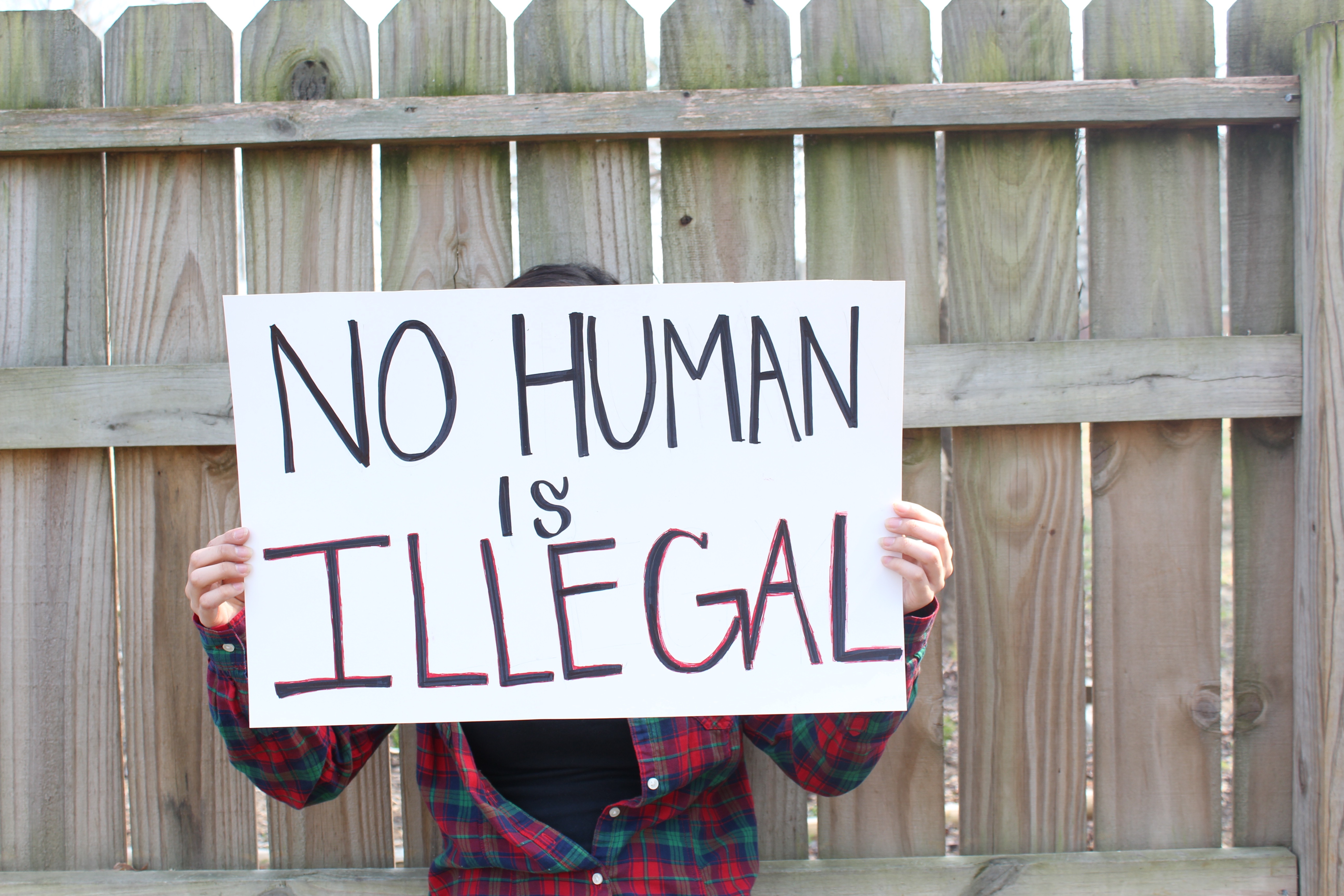All names, except that of ESL teacher Christopher Atkins, have been changed to protect the identity of undocumented immigrants.
Sofia Lopez left Cuernavaca, Mexico at the age of one with her two-year-old brother and mother to come to the United States without papers.
The journey through Mexico to get to the U.S. was strenuous. Sofia and her family spent days working their way up to the Mexican-American border, hiding from danger and hitching rides with strangers.
They slept in ditches and tunnels with small towels on the ground. Sofia would wake once the sun came up and continue walking with her mom and brother. Her family walked miles in the desert and the woods in order to get to the U.S.
When it was time to cross the border, Sofia did not cross with her mother. Her father, who was already in the U.S., had arranged for two strangers to pick up Sofia and her brother at a small cabin. All Sofia’s mom knew were their names.
“We crossed over with fake papers so we wouldn’t have to deal with crossing over the rivers like [my mother] did,” Sofia said.
Her mother, Christel Lopez, spoke through a translator about her fears of bringing her two young children across the border and handing them to strangers.
“I felt very bad, because my children were so young, and if they kidnapped them, I wouldn’t be able to ever find them again,” Christel said. “Since they were little, they wouldn’t be able to recognize me, and I wouldn’t be able to recognize them. I was scared, but then again, I understood that I could give my children a better future in the United States than in Mexico. That’s why we risked everything.”
Christel knew the United States would have better opportunities for her children, but it was hard to leave her life behind in Mexico.
“I started thinking when I left there that it was really hard to leave my brothers and sisters and my mom,” Christel said. “You leave and you just look back at the place you grew up, and you begin to walk, and everything is left behind. I just told myself that everything was to better my childrens’ futures.”
Under the Obama administration, a program was created known as Deferred Action for Childhood Arrivals (DACA). According to U.S. Citizens and Immigration (USCIS), DACA allows children the opportunity to go to school and work if they meet the criteria and “will not be placed into removal proceedings or removed from the United States for a specified period of time.” DACA recipients must resubmit their application every two years. Although they are safely in the U.S., there is a fear of deportation that lurks in the minds of undocumented immigrants.
“I have mentally prepared myself for being deported because now they are deporting people with DACA too,” Sofia said. “I’m trying to be prepared to not see my family anymore—that’s my biggest fear.”
DACA recipient Daniel Ramirez, 24, was arrested and detained by U.S. Immigration and Customs Enforcement (ICE) Feb. 10. Ramirez is the first DACA recipient in the country to be arrested with no criminal charges. Ramirez was released from Tacoma Northwest Detention Center Mar. 29 with a $15,000 bond.
According to National Immigration Law Center (NILC), President Donald Trump has not clearly stated a plan to either repeal DACA or to keep it. USCIS confirmed Jan. 23 that they are still taking applications for DACA and processing them.
“I feel insecure about what my future could look like in this country,” senior Emilia Escobar said. “If I get deported back to Mexico, I’m also insecure about how things are going to go.”
According to NILC, over 750,000 people have applied to or received DACA. This allows DACA recipients to obtain driver’s licenses, social security numbers and get better paying jobs.
“If DACA was repealed, I would lose my work authorization card and my social security,” Sofia said. “When I got DACA, I got a social security number. Without DACA I wouldn’t have gotten the job I have. College would be more expensive, and I couldn’t get sponsored [allows students to receive in state tuition] either.”
Northwood English as Second Language teacher Christopher Atkins gave his perspective on DACA.
“I certainly think the DACA program is welcome and it certainly gives a lot of students a sense of purpose and a sense of safety and wellbeing,” Atkins said. “I do believe that if you were brought into this country as a child, and you are technically illegal, there should be some way to readjust your status in a way that allows you to become a member of society so that the U.S. benefits from you in a legal way.”
Christel spoke about the hardships she faces as an undocumented immigrant in the United States.
“[Bosses] pay some people more because they are from here and they don’t know the work,” Christel said. “[Workers] come in and are told they will get paid $10 an hour. And people like me have to start at $7.25 or $8, because people like me aren’t from here—we don’t know their language—and I have to accept it.”
According to the American Psychological Association, an estimated 25 percent of children who live in the United States have at least one undocumented parent.
Escobar shared her story as an undocumented student.
“My family decided to originally come because of all the drug and war violence and gang violence in Mexico,” Escobar said.
At the age of five, Escobar crossed the border with her parents.
“My family and I came and crossed the border through Texas,” Escobar said. “We were with a lot of Honduran people and Salvadoran people. We were in a house for like a week where we couldn’t go outside. We were just there in the dark. Food was limited. The scary part was we were in the desert for a whole night because one van was supposed to take us, but the man never came because he got scared. Eventually, a van came.”
Lucas Martinez remembered his mother mentioning how sometimes women were not respected during their journey to the U.S.
“She said that the coyotes, which are the people that help others cross the border, can be very aggressive at times, and sometimes they would take advantage of women,” Martinez said.
Atkins has lived in many different areas and seen how people react to undocumented immigrants.
“I noticed when I was in Miami, you would walk in, and it wouldn’t be the color of your skin that says what language I’m going to speak to you; they will just speak in whatever language they first think of,” Atkins said. “I think here in North Carolina, it’s a different atmosphere. They haven’t had that connection with Spanish speaking people, and so there’s a fear. It’s easy to fear, and people are afraid of what they don’t know.”
Atkins was originally from Great Britain, so he described his process of becoming a U.S. citizen.
“The process [to become a citizen] was over four years,” Atkins said. “It was expensive—it cost thousands of dollars. I made it a point to find out what I needed to do. I was living in a place where I had easy access to find a consulate or an embassy to go and talk to. I think for a lot of these people, those situations don’t really occur, and I think for them it’s mostly an economic issue.”
Atkins described how immigration was encouraged and needed when jobs were not being filled.
“When I first came to Chatham County, businesses were encouraging people to come here to work, undocumented or documented,” Atkins said. “They didn’t care—just come here and work. Do the job. I think it’s a bit of a canard that people say they are going to come here and take our jobs away, and I think they are going to come here and do the jobs we don’t want to do. That’s the truth, and it’s nothing new. Waves of immigration have done the same thing throughout the history of the U.S.A.”
– By Tory Scott



